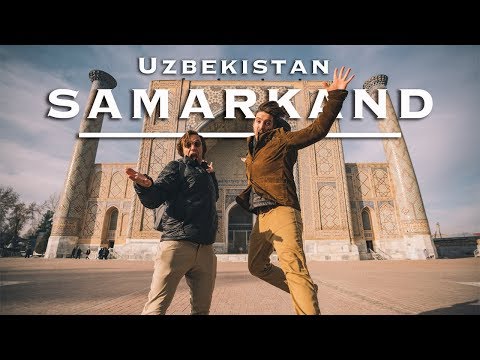
Nestled in the heart of Central Asia, Samarkand is not just a city but a mesmerizing tapestry of culture, history, and architectural grandeur. As one of the oldest continuously inhabited cities in Central Asia, Samarkand has been a central hub on the Silk Road, the ancient trade route that connected China with the Mediterranean. Today, it stands as a pivotal site in Uzbekistan, inviting travelers from across the globe to delve into its rich past and vibrant present.
#### Historical Majesty
Samarkand’s history is as colorful as the mosaics that adorn its ancient structures. It was conquered by Alexander the Great, became the capital of Tamerlane’s empire in the 14th century, and flourished as a center of Islamic scholarship and culture. Each era left its mark on the city, contributing to its architectural wealth and multicultural fabric.
#### Architectural Wonders
A journey through Samarkand is akin to walking through a living museum. The city’s most iconic site is undoubtedly Registan Square, surrounded by three majestic madrasahs (Islamic schools) – Ulugh Beg Madrasah, Sher-Dor Madrasah, and Tilla-Kori Madrasah. These structures are famed for their dazzling Islamic architecture characterized by intricate tile work, majestic domes, and towering minarets.
Another must-visit landmark is Gur-e-Amir, the mausoleum of Tamerlane (Timur), which features a fluted azure dome and exquisite interior decorations. This architectural masterpiece set a precedent for later Muslim mausoleums in India and Central Asia including Humayun’s Tomb in Delhi and even influenced the Taj Mahal.
The Bibi-Khanym Mosque tells stories of grandeur and subsequent decay followed by careful restoration efforts now symbolizing Samarkand’s resilience and enduring beauty. Supposedly commissioned by Timur as an homage to his wife Bibi-Khanym after his return from India, it was once one of the Islamic world’s largest mosques.
#### Cultural Tapestry
Samarkand also offers an enthralling cultural experience. The city’s bazaars brim with life showcasing colorful crafts including ceramics known for their distinctive blue-and-turquoise glazing techniques pioneered here many centuries ago. Siab Bazaar remains a lively spot where you can taste local breads like Samarkandi non or savor fruits such as persimmons or figs depending on the season.
The people of Samarkand are descendants from various cultures including Persian-speaking Tajiks and Turks adding layers to local customs and languages making every interaction an opportunity for cultural exchange.
#### Culinary Delights
Uzbek cuisine offers an array of flavors typically served with warm hospitality – essential elements of visiting Samarkand. Plov (pilaf), considered Uzbekistan’s national dish comes in many regional variations though all feature rice cooked with seasoned meat usually lamb carrots onions sometimes raisins offering sustenance after long journey paths once traversed by silk/road merchants.
For those adventurous enough trying somsa savory pastry filled meats onions spices baked tandoor oven provides tasty insight into local culinary traditions.
#### Practical Information
Visiting Samarkand is increasingly straightforward thanks improving tourist facilities streamlined visa processes international visitors Uzbek government recognizes increasing value tourism economy promoting sites like Registan Gur-e-Amir global audience easing entry requirements facilitating travel logistics within region necessitating merely curiosity sense adventure explore rich offerings ancient yet vibrant city.
When planning your trip keep mind best time visit usually late spring early autumn when weather pleasantly warm allowing comfortable exploration architectural sites bustling bazaars without harsh summer heat intense winter cold which can deter outdoor activities somewhat limit experience magical city that has captivated travelers traders scholars alike centuries its timeless allure continues draw curious minds today seeking connect past present along legendary silk road routes once crisscrossed Eurasian landscapes connecting diverse peoples cultures commerce ideas profoundly shaping world we know today unparalleled destination those interested history architecture genuine cultural exchanges underpinning human connections across borders time making journey Samarkand not only travel destination exploration humanity itself.
